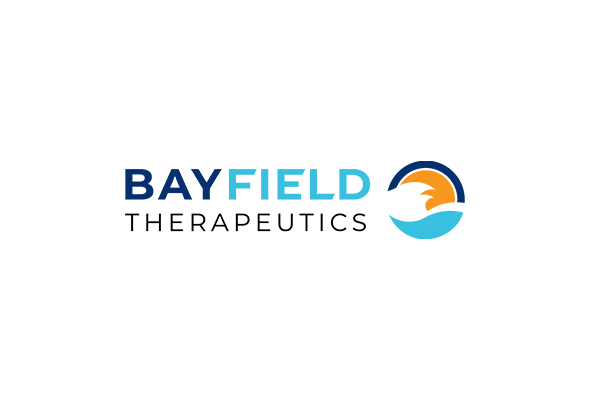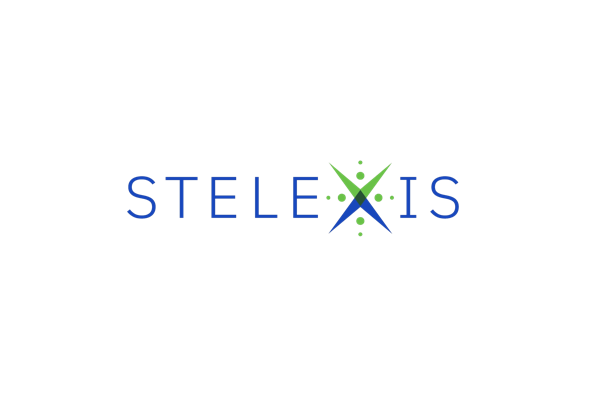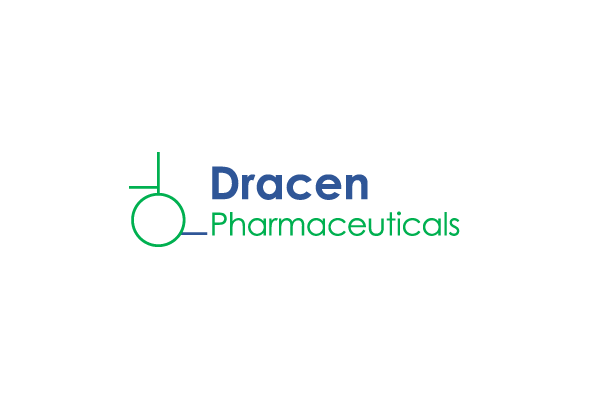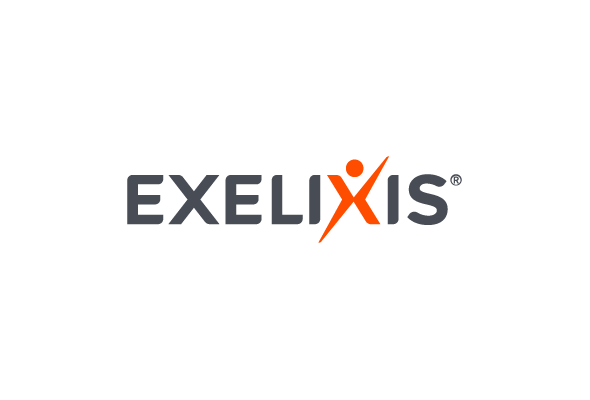In September 2022, Moffitt Cancer Center, one of the nation’s leading cancer care and research institutions, and Deerfield Management announced a translational research alliance through a newly launched company called Bayfield Therapeutics LLC, to accelerate the development of new therapeutics to treat cancer. Deerfield has committed up to $130 million over the next 10 years to this collaboration.

Moffitt Cancer Center and Deerfield Management Launch Bayfield Therapeutics
Deerfield commits up to $130 million over 10 years to accelerate Moffitt’s innovative drug discovery research
NEW YORK and TAMPA, Fla. (Sept. 19, 2022) — Moffitt Cancer Center, one of the nation’s leading cancer care and research institutions, and Deerfield Management, a health care investment firm, announced today a major translational research alliance to accelerate the development of new therapeutics to treat cancer. Through a newly launched company called Bayfield Therapeutics LLC, Deerfield has committed up to $130 million over the next 10 years to this new collaboration.
“This partnership is a strong representation of what we aim to achieve at Deerfield to help shape the future of health care,” said James E. Flynn, managing partner at Deerfield Management. “Alongside the impressive team at Moffitt, we’ll have the opportunity to combine our financial, operational and development expertise with their existing pipeline, offering a flexible approach and access to additional resources that will ideally bring several new and improved therapeutic solutions to patients battling cancer.”
“This new research collaboration will help build upon Moffitt’s stellar reputation of translating our research from the bench to the bedside. Through Bayfield Therapeutics we aim to accelerate the rate at which we are translating these discoveries, into potentially lifesaving therapies for cancer patients,” said John Cleveland, Ph.D., executive vice president and center director of Moffitt. “Together, we hope to make a lasting impact on cancer care, improving outcomes for patients in our community and beyond.”
Bayfield Therapeutics, LLC is a private company wholly owned by affiliates of Deerfield Management. Its goal is to fund projects that have uncovered novel therapeutics that have the potential to cure life-altering diseases. This collaboration will build upon the robust drug pipeline already established by scientists at Moffitt.
“We are very excited to partner with Deerfield in this effort to advance novel cancer drugs toward the clinic. Moffitt has a strong and innovative basic and pre-clinical drug discovery pipeline with deep expertise in state-of-the-art technologies,” said Derek Duckett, Ph.D., chair of the Drug Discovery Department at Moffitt. “With the operational support from Deerfield, we are confident that this new collaboration will accelerate the development of our unique and promising molecules to achieve Investigational New Drug readiness.”
As part of the alliance, Deerfield will provide development expertise to help shepherd potential cutting-edge treatments to cancer patients.
Starting this fall, researchers at Moffitt will have the opportunity to submit proposals to Deerfield for review. Each selected project will receive resources and expertise to support the progression from the discovery research phase to clinical testing. Selected proposals will also have eligibility for additional capital investments to create spinoff companies.
About Moffitt Cancer Center
Moffitt is dedicated to one lifesaving mission: to contribute to the prevention and cure of cancer. The Tampa-based facility is one of only 53 National Cancer Institute-designated Comprehensive Cancer Centers, a distinction that recognizes Moffitt’s scientific excellence, multidisciplinary research, and robust training and education. Moffitt’s expert nursing staff is recognized by the American Nurses Credentialing Center with Magnet® status, its highest distinction. With more than 7,800 team members, Moffitt has an economic impact in the state of $2.4 billion. For more information, call 1-888-MOFFITT (1-888-663-3488), visit MOFFITT.org, and follow the momentum on Facebook, Twitter, Instagram and YouTube.
About Deerfield Management
Deerfield is an investment management firm committed to advancing healthcare through investment, information and philanthropy. The Firm works across the healthcare ecosystem to connect people, capital, ideas and technology in bold, collaborative and inclusive ways. For more information, please visit www.deerfield.com.
MEDIA CONTACTS:
Kim Polacek
813-745-7408
[email protected]
Caroline Drucker
212-582-8296
[email protected]

Dana-Farber Cancer Institute and Deerfield Management Launch Riverway Discoveries
Deerfield commits up to $130 million over 10 years to fund translational research at Dana-Farber
Boston, MA – February 08, 2021 – Dana-Farber Cancer Institute and Deerfield Management Company, a healthcare investment management firm focused on advancing healthcare through investment, information and philanthropy, have formed a major translational research partnership to accelerate the development of therapeutics and diagnostics for cancer. Deerfield has committed up to $130 million over the next 10 years to advance research at Dana-Farber and translate scientific discoveries with potential applications for patients
Riverway Discoveries represents the first time Deerfield has created a second such partnership with one of its academic collaborators. In the first agreement, announced in 2018, Deerfield committed $80 million to create the Center for Protein Degradation at Dana-Farber.
“Translational funding in biomedical research, when the promise of success is not obvious or guaranteed, can often be the engine that ensures innovative research moves forward, paving the way for important discoveries and new and better therapies,” said Laurie H. Glimcher, MD, president and CEO, Dana-Farber Cancer Institute. “I am hopeful that this investment by Deerfield at Dana-Farber now will eventually help improve the lives of people with cancer everywhere.”
“Supporting the innovation engines at institutions with world class science, investigators and leadership through financial, operational and translational expertise focused on projects with the potential to change lives can ultimately lead to the financial success of the institutions. This may be the most powerful way we can help support the healthcare ecosystem,” stated James Flynn, Deerfield managing partner. “Dana Farber is the perfect example of an institution with all the fundamentals where a flywheel of innovation can be supported with translational funding. We are pleased to be an innovation partner with now two separate collaborations focused on the most exciting and life saving translational projects.”
Getting new therapeutics to patients is a driver in Dana-Farber’s research and drug discovery work. Building on Dana-Farber’s history and strong foundation of scientific leadership, innovation and drug development, this partnership with Deerfield and Riverway Discoveries will support the preclinical development, spurring commercialization to help advance the most promising research expeditiously. Advancing the drug pipeline forward more swiftly, enables new treatments to be developed more quickly, delivering on the ultimate goal of improving patient care and saving lives.
“We are thrilled to collaborate again with Deerfield, as our previous partnership in protein degradation is enabling us to advance an exciting portfolio of discoveries. This new partnership will give scientists across Dana-Farber a new pathway to incubate cutting-edge science that will advance cancer care,” said Lesley Solomon, Senior Vice President and Chief Innovation Officer at Dana-Farber. “Many promising innovations outgrow the laboratory as they require greater resources than an academic setting can typically provide. Dana-Farber’s partnership with Deerfield will catalyze important innovation growth.”
Starting later this month, Dana-Farber researchers may submit proposals on projects for consideration by a Riverway Discoveries joint steering committee whose membership comprises equal scientific leadership representing Dana-Farber and Deerfield. Through Riverway Discoveries, Deerfield will provide funding and operational support for accepted projects.
About Dana-Farber
Dana-Farber Cancer Institute is one of the world’s leading centers of cancer research and treatment. Dana-Farber’s mission is to reduce the burden of cancer through scientific inquiry, clinical care, education, community engagement, and advocacy. We provide the latest treatments in cancer for adults through Dana-Farber/Brigham and Women’s Cancer Center and for children through Dana-Farber/Boston Children’s Cancer and Blood Disorders Center. Dana-Farber is the only hospital nationwide with a top 10 U.S. News & World Report Best Cancer Hospital ranking in both adult and pediatric care.
As a global leader in oncology, Dana-Farber is dedicated to a unique and equal balance between cancer research and care, translating the results of discovery into new treatments for patients locally and around the world, offering more than 1,100 clinical trials.
About Deerfield
Deerfield is an investment management firm committed to advancing healthcare through investment, information and philanthropy.
For more information, please visit www.deerfield.com
Contacts
Dana-Farber Cancer Institute
Ellen Berlin, 617-750-8884
[email protected]
Deerfield Management Company
Karen Heidelberger, 212-583-7298
[email protected]
Genomics: How Next Generation Sequencing Might Play Out and the Implications for Precision Medicine
Precision medicine holds the promise of providing patients with therapies that target the biological mechanism contributing to a particular individual’s disease. Historically, the approach to developing novel medicines has lacked the ability to optimize therapy based on specific factors resulting in an individual patient’s disease state.
Although many drugs have been approved on the basis of clinical trials run in all patients with a disease, some patients enrolled in those trials have had a strong treatment effect while others had minimal to no effect due to biological diversity. With the advent of next generation sequencing (NGS), we now have the ability to understand the diversity of pathways and patient subsets that make up the broader diseased population. This affords the ability to develop therapies for a given patient that targets their specific genetic alteration.
Cancer has been a leading beneficiary of these advances. From a research perspective, biologists can now use next generation sequencing to identify mutations present in patient tumors. Many of these new insights have allowed researchers to further our understanding of cancer biology, although this is only the beginning to the development of targeted therapeutics. In addition to the identification of a novel mutation, researchers and clinicians must advance the science into clinical practice by validating the target through clinical trials in the relevant subset of patients.
This path to clinical validation runs counter to traditional drug development which typically require large trials to prove a drug is effective. With many patient subsets (or mutations) that might exist within a given cancer, it is typically not feasible to run large clinical trials. Yet, despite these challenges, a fundamental understanding of the biology and administration of appropriately targeted therapies has proven adequate by regulators to approve novel drugs. This has resulted in a rapid time to approval, bringing novel therapies to market in record time.
While NGS continues to hold tremendous promise toward the goal of precision medicine, there are a number of practical and technological challenges that currently limit broad applicability. Given the size of the human genome, there is a tremendous amount of data generated per sample of tissue. With existing sequencing technologies, performing whole genome sequencing can take 2-3 weeks due to the processing and interpretation of data. This is a challenge in the clinical setting since patients presenting with cancer may not tolerate a significant delay between diagnosis and therapy.
Additionally, while the cost of whole genome sequencing has come down over time, it can exceed thousands of dollars per sample making it prohibitive to adopt for all patients due to sheer cost. We anticipate that competition and improvement in technology will improve both the speed of a test result and cost thereby making it more accessible to the masses.
NGS also has technical limitations that limit broad clinical applicability. Genomic data derived from NGS technologies are descriptive and static representing a snapshot of the genetic mutations in a small sample of tissue. With cancer being a constantly mutating disease, it is important to keep up with the evolving genetic composition to optimize therapy over time. Additionally, a mutation in one tissue sample may not reflect the broad array of mutations present throughout the entire tumor.
A number of emerging technologies appear to have the potential to address these limitations. Liquid biopsy technologies can identify circulating genetic information, are non-invasive, and can provide a near real-time result, thereby holding the promise of a valuable monitoring and treatment optimization tool. There are also a host of functional genetic and cellular technologies that provide more detailed information as to which mutations are most importantly related to the process contributing to a given patient’s cancer. With the improvements of existing NGS technologies and introduction of novel technologies that can supplement our understanding of cancer biology, we are moving closer to the promise of precision medicine for all patients. Continued investment in the space holds the promise of making these technologies ubiquitous, low cost, and increasingly informative. Moreover, the speed at which novel biological insights can be tested and validated in the clinical setting are likely to increase rapidly as our knowledge of the underlying biology increases.

Stelexis Therapeutics Closes $43 million Series A to Expand Novel Platform Focused on Cancer Interception
Stelexis is a Deerfield founded and solely funded company
New York, NY – January 7, 2019 – Stelexis Therapeutics, LLC announced that it closed a $43 million Series A financing to expand its proprietary platform to discover and selectively target pre‐cancerous stem cells. Deerfield established Stelexis in 2017 together with scientific founders, Ulrich Steidl, Evripidis Gavathiotis, Amit Verma, and Roman Perez‐Soler of Albert Einstein College of Medicine, Montefiore Health, New York and Derrick Rossi of Boston Children’s Hospital, Harvard Medical School. Patrick Doyle serves as the founding CEO, and Keren Paz is the CSO of Stelexis.
Stelexis’ proprietary drug discovery platform identifies the earliest definable pre‐cancerous stem and progenitor cells that lead to the formation of human primary and recurrent tumors for therapeutic intervention and relapse prevention. Stelexis’ mission is to develop novel cancer drugs that selectively target these critical pre‐cancerous events related to both hematopoietic and solid malignancies.
“The ability to identify, isolate, study and screen rare pre‐cancerous stem cells, from within bulk tumors, is an enormous breakthrough that has the potential to change how cancer patients are treated” stated Dr. Steidl. “Our thesis is that targeting cancer at its very origin should not only be effective as first line therapy, but should also lead to long‐lasting remission for patients,” said Dr. Rossi, who, prior to co‐founding Stelexis, has also co‐founded numerous other successful biotechnology companies.
Utilizing Deerfield seed funding and operational support since 2017, Stelexis has established its labs in Albert Einstein College of Medicine facilities, hired key management and is poised to deliver clinical trial data that validate its platform using the proceeds of this Series A round.
“We are thrilled to announce the formation and funding of Stelexis, which has the platform technology to explore the role pre‐cancer conditions play in cancer development and recurrence. The team has an outstanding track record and we look forward to a stream of transformative cancer medicines,” stated Dr. Robert Jackson, director at Stelexis and partner at Deerfield Management.
“Deerfield’s holistic approach to forming, funding and providing operational support to Stelexis has been instrumental in creating a leadership position in a novel targeted approach to treating cancer,” said Patrick Doyle, CEO of Stelexis. “With these funds we are now positioned to execute on our potential to transform patients’ lives.”
About Stelexis
Stelexis is a New York‐based cancer therapeutics company, utilizing its proprietary platform to selectively target pre‐cancerous stem cells to discover and develop transformative therapies.
For more information, please visit www.stelexis.com
About Deerfield
Deerfield is an investment management firm committed to improving healthcare through investment, information and philanthropy.
For more information, please visit www.deerfield.com
Contacts
Deerfield Management Company
Karen Heidelberger
212‐551‐1600
[email protected]
Stelexis Therapeutics
Patrick Doyle
[email protected]

Dana-Farber Cancer Institute and Deerfield Collaborate to Create the Center for Protein Degradation
- The Center for Protein Degradation will build upon the work of Dana-Farber researchers Nathanael Gray, PhD and Eric Fischer, PhD
- Deerfield Commits up to $80 million as well as Operational and Managerial Support
Boston, MA and New York, NY – November 13, 2018 – Dana-Farber Cancer Institute and Deerfield Management announced today an up to $80 million collaboration to create the Center for Protein Degradation at Dana-Farber. The goal of the Center for Protein Degradation is to interrogate and advance a large portfolio of advanced targeted protein degrader targets while creating a next-generation protein degrader platform. The platform will utilize knowledge created while interrogating the targets and will continue to advance the science of targeted protein degradation of additional members of the proteasome for therapeutic benefit.
The new Center for Protein Degradation will be led by Dr. Nathanael Gray and Dr. Eric Fischer, both world-renowned scientists, while operational support, management expertise and initial funds will be contributed by Deerfield. Additional funding for therapeutic targets will be provided by Deerfield upon successful proof-of-concept studies.
Current targeted protein degraders work by directing a protein of interest to the proteasome where it is broken down into smaller polypeptides. Protein degradation serves multiple purposes and can be used to interrogate basic biology or eliminate a protein that is implicated in disease initiation or progression from a cell for an extended period of time. This approach may provide more robust therapeutic effects due to complete elimination of protein function as compared to classical small molecule protein inhibitors that target a particular catalytic activity. The Center for Protein Degradation will focus on development of efficient approaches for discovering and optimizing new small molecule degraders and in identifying the biological targets most tractable for this approach.
The Center for Protein Degradation will solicit collaborations from the Dana-Farber and Harvard Medical School community to explore degradation concepts across a wide range of targets and disease settings. Projects will move through a tiered system from proof of concept, to validation in preclinical models and towards clinical development.
“We are excited about exploring the promise of protein degradation with Deerfield and appreciate the substantial commitment it is making to this enterprise,” said Laurie H. Glimcher, MD, president and CEO of Dana-Farber. “This new Center for Protein Degradation will be a critical focal point in a vibrant community of accomplished scientists and investigators.”
“In creating the Center for Protein Degradation, we can advance science and identify multiple novel therapeutics targeted at ending cancers. We are thrilled to be collaborating with Dr. Gray, Dr. Fischer and the entire Dana-Farber team in this first of its kind collaboration,” stated James Flynn, managing partner at Deerfield.
“Protein degradation is potentially a key to unlocking cures for cancer,” commented William Slattery, partner at Deerfield. “The examination of targets with this expertise will create a pathway that goes beyond the normal confines of drug development.”
Paul Hastings, LLP acted as legal counsel to Deerfield. Dana-Farber Cancer Institute was represented by Wolf, Greenfield and Sacks, P.C. and McDermott Will & Emery.
About Dana-Farber
From achieving the first remissions in childhood cancer with chemotherapy in 1948, to developing the very latest new therapies, Dana-Farber Cancer Institute is one of the world’s leading centers of cancer research and treatment. It is the only center ranked in the top 4 of U.S.
News and World Report’s Best Hospitals for both adult and pediatric cancer care.
Dana-Farber sits at the center of a wide range of collaborative efforts to reduce the burden of cancer through scientific inquiry, clinical care, education, community engagement, and advocacy. Dana-Farber/Brigham and Women’s Cancer Center provides the latest in cancer care for adults; Dana-Farber/Boston Children’s Cancer and Blood Disorders Center for children. The Dana-Farber/Harvard Cancer Center unites the cancer research efforts of five Harvard academic medical centers and two graduate schools, while Dana-Farber Community Cancer Care provides high quality cancer treatment in communities outside Boston’s Longwood Medical Area.
Dana-Farber is dedicated to a unique, 50/50 balance between cancer research and care, and much of the Institute’s work is dedicated to translating the results of its discovery into new treatments for patients locally and around the world.
About Deerfield
Deerfield is an investment management firm committed to advancing healthcare through investment, information and philanthropy.
For more information, please visit www.deerfield.com
Contacts
Dana-Farber Cancer Institute
Ellen Berlin, 617-632-4090
[email protected]
Deerfield Management Company
Karen Heidelberger, 212-551-1600
[email protected]

Deerfield Commits $36 Million to Advance Dracen’s Novel Immuno-Metabolism Pipeline
New York and Baltimore – March 22, 2018 – Deerfield Management announced today that it has committed $36 million of a $40 million Series A investment to advance Dracen Pharmaceuticals, Inc.’s novel immunometabolism pipeline. Dracen, a private company developing proprietary anti-cancer drugs discovered at the Johns Hopkins University and the Institute of Organic Chemistry and Biochemistry of the Czech Academy of Sciences (IOCB Prague), will use this financing to progress its programs into clinical trials for patients suffering from cancer.
Dracen will develop its platform of novel glutamine antagonists by building upon the immuno-metabolism effects demonstrated in preclinical cancer models. Immuno-metabolism is the convergence of cancer metabolism and immuno-oncology whereby agents disrupt the energy sources required to keep tumors alive while simultaneously inducing the patient’s own immune system to fight cancer. Dracen intends to develop its glutamine antagonists both in single-agent settings as well as in combination with immune checkpoint inhibitors such as anti-PD-1 and anti-PD-L1.
“We are pleased to partner with Dracen and its founders from Johns Hopkins University,” said Jonathan S. Leff, a Partner with Deerfield Management. “We see great potential for Dracen’s approach to deliver improved outcomes for cancer patients and potentially extend the benefits of immuno-oncology therapies.”
“We are excited to partner with Deerfield to advance our immuno-metabolism pipeline” remarked Thomas M. Estok, Chief Executive Officer of Dracen Pharmaceuticals. “Deerfield’s engagement in our efforts helps bring us closer to an important potential step forward in the treatment of cancer.”
About Dracen Pharmaceuticals
Dracen Pharmaceuticals, Inc. is a privately-funded biotech company developing proprietary glutamine antagonists discovered at the Johns Hopkins University and the Institute of Organic Chemistry and Biochemistry of the Czech Academy of Sciences (IOCB Prague). Dracen was founded by Johns Hopkins University professors Barbara Slusher, MAS/PhD; Jonathan Powell, MD/PhD; and Rana Rais, PhD; together with their IOCB Prague collaborator Pavel Majer, PhD to develop the novel glutamine antagonists for the treatment of cancers as well as autoimmune and inflammatory diseases.
About Deerfield
Deerfield is an investment management firm committed to advancing healthcare through investment, information and philanthropy.
For more information, please visitwww.deerfield.com
Contacts
Deerfield Management Company
Karen Heidelberger, 212-551-1600
[email protected]

Broad Institute and Deerfield Management Announce the Advancement of Two Partnership Projects
Cambridge, MA and New York, NY – February 6, 2018 – The Broad Institute of MIT and Harvard and Deerfield Management announced today the advancement of two projects through their first-of-its-kind research partnership, which is aimed at solving complex, early-stage therapeutic challenges related to serious unmet medical needs.
In the first projects, the collaboration will focus on novel targets that reveal underlying vulnerabilities in:
Acute leukemia
A team led by Dr. Benjamin Ebert has characterized the role of a mutation that alters a key survival pathway in acute leukemia as well as other cancers, resulting in resistance to chemotherapy.
“Now that we have identified the biological roots of certain types of drug resistance in cancer, we are working to develop a therapeutic intervention,” Ebert said. “Our partnership with Deerfield allows us to advance this research far more rapidly than we would otherwise, and move the research closer to the clinic.”
Benjamin Ebert is an institute member of the Broad Institute, a professor of medicine at Harvard Medical School, and chair of medical oncology at the Dana-Farber Cancer Institute.
Common genetic alterations in cancer
A team led by Dr. William Sellers identified a genetic susceptibility that is present in a wide variety of cancers, including some of the most treatment-resistant cancers, such as pancreatic cancer.
“This genetic susceptibility provides a new avenue for drugging an exciting therapeutic target,” Sellers said. “The partnership between Deerfield and the Broad Institute significantly speeds up the initiation of drug discovery efforts, with the goal of improving cancer treatment.”
William Sellers is a core institute member of the Broad Institute of MIT and Harvard, a faculty member at Harvard Medical School, and faculty member and senior advisor to the president for experimental therapeutics at the Dana-Farber Cancer Institute.
“Broad scientists continue to produce novel insights into diseases which have high morbidity and mortality rates,” said James Flynn, Managing Partner of Deerfield Management. “Our partnership seeks to find expeditious ways to translate these discoveries into therapies. The collaborative spirit demonstrated by the Broad teams has made rapid progress possible and we are excited to move forward on our first projects.”
The Broad Institute’s Center for the Development of Therapeutics (CDoT), led by Martin Drysdale, is the Broad Institute’s team of drug discovery professionals who partner with faculty members and their labs to translate emerging biological insights into novel therapeutic strategies.
In October, the Broad Institute and Deerfield announced a collaboration to jointly pursue transformative, early-stage therapeutics research by establishing funding for early-stage academic research, and with longer-term support to create new entities to develop therapies out of promising projects.
“The efficient process and time frame through which these projects were chosen and launched is a testament to the teamwork between the Broad and Deerfield,” Drysdale said. “The collaboration between Broad and Deerfield allows us to draw simultaneously on the skills of academia and industry, which allows us to engage in more extended exchange of knowledge, ideas, and methods — with the goal of benefiting patients in the clinic as soon as possible.”
About the Broad Institute of MIT and Harvard
Broad Institute of MIT and Harvard was launched in 2004 to empower this generation of creative scientists to transform medicine. The Broad Institute seeks to describe all the molecular components of life and their connections; discover the molecular basis of major human diseases; develop effective new approaches to diagnostics and therapeutics; and disseminate discoveries, tools, methods, and data openly to the entire scientific community.
Founded by MIT, Harvard, Harvard-affiliated hospitals, and the visionary Los Angeles philanthropists Eli and Edythe L. Broad, the Broad Institute includes faculty, professional staff, and students from throughout the MIT and Harvard biomedical research communities and beyond, with collaborations spanning over a hundred private and public institutions in more than 40 countries worldwide. For further information about the Broad Institute, go to http://www.broadinstitute.org.
About Deerfield
Deerfield is an investment management firm committed to advancing healthcare through investment, information and philanthropy.
For more information, please visit www.deerfield.com
Contacts
Broad Institute of MIT and Harvard
David Cameron
617-714-8600
[email protected]
Deerfield Management Company
Karen Heidelberger, 212-551-1600
[email protected]

CAR-T In Context
2017 has been a landmark year that has seen the approval of two new immunotherapies known as chimeric antigen receptor T-cell (CAR-T) therapies, which are gene edited immune cells designed to recognize and attack certain cancers delivered in a one-time infusion. Much has been said about these products, and more still will be said as it is expected that these products get approvals in new indications, as well as the first-time approvals of other CAR-T products. Given the sophisticated science and novelty behind CAR-T, they are often mentioned in the same breath as gene therapy products. In some instances this may be merited, while in others it may sell CAR-T short relative to the slate of already approved gene therapies. Here, we will highlight key aspects of CAR-T, some lingering questions following these initial approvals, and points of differentiation from other gene therapy products.
Kymriah was the first CAR-T product approved in the US this year for certain acute lymphoblastic leukemias, and Yescarta was subsequently approved for certain large B-cell lymphomas. In both cases, eligible patients have already failed multiple lines of chemotherapy and even failed bone marrow transplantations (BMT) for their blood cancers. CAR-T has been shown to take patients who were otherwise nearly on death’s doorstep and given some what appear to be fairly durable remissions. The upper bound of this range is still unknown simply because trial patients continue to be followed out in real time. In the case of Kymriah, roughly half of patients in clinical trials had a previous BMT, while 8% had two or more BMTs. With standard of care, these patients would otherwise have a median survival of roughly four to seven months, versus some patients out over 14 months post CAR-T treatment and still being followed. These late line ALL patients have had a near doubling of complete responses (disease remission) of roughly 83% versus roughly 20-40% depending on standard of care chemotherapy. Other patients, while they may initially have a good response to CAR-T but subsequently relapse, have gone on to a repeat CAR-T treatment in clinical trials, or possibly BMT. However, the interim CAR-T treatment is thought to improve post-BMT prognosis for some of these patients.
Institutional Complexity
The technical skillset required to administer these therapies limits the universe of locations to a select number of specialized cancer treatment centers, typically the centers of excellence that have historically performed the more difficult BMTs. Most of these centers, who also participated in the registrational trials, issued press releases in the hours and days following the approvals of these products noting their involvement in clinical trials and plans to offer commercially, as a testament to the medical community’s excitement for them. There is also a competitive advantage for these types of centers to be proficient in the delivery of CAR-T, as more products and indications are expected to follow, as mentioned above. It will likely only be incrementally more difficult to offer additional CAR-T options as compared to the initial legwork of preparing to offer CAR-T. This complexity is due to several factors: patients are already very sick before they arrive for treatment, and that a multi-specialty team needs to be assembled to deal with any side effects that may arise. The timing and severity of these side effects, most notably cytokine release syndrome (CRS), is somewhat variable, occurring anywhere from days to weeks post-infusion.
Though the administration of CAR-T is a simple infusion, many centers are choosing to administer in the inpatient setting rather than outpatient, as then there is some internal control over the availability of medical or neurological intensive care unit beds if and when CRS occurs. CRS is a result of the CAR-T cells destroying the patient’s cancer burden, with that destruction causing a release of cytokines. The release of cytokines in general does not produce such a severe side effect, but rather the volume of cytokines the body needs to deal with as a result of the CAR-T doing its job so well. Some patients need to be placed into a medically induced coma depending on the severity of CRS. While a difficult side effect, it is somewhat of a catch-22 as it is a sign that the CAR-T is working appropriately.
There is an expectation that over time, the administration will migrate outpatient as we gain a better understanding of pre-treatment parameters that may influence the likelihood of severe CRS, and patients can be triaged for in or outpatient administration as appropriate.
Other Logistical Concerns
Novartis, the maker of Kymriah, announced a price of $475,000 upon approval, leading many to speculate that this was effectively the price of a cure for any CAR-T product, in any indication. However, Novartis also said it plans to pursue indication-based pricing for Kymriah, such that future approvals for the drug in other indications, with larger or smaller patient populations, could come with lower or higher prices, accordingly. Further, the Swiss pharmaceutical company said it has a collaboration in place with the Centers for Medicare and Medicaid Services (CMS) where CMS would only have to pay for Kymriah in patients who responded by the end of the first month after the one-time treatment.
As of yet, there are scant details on the CMS arrangement which some have criticized to be more optics than substance. There are several issues at play: that the one month outcomes point is less relevant than a three month clinical endpoint; concerns that what amounts to giving Kymriah away for free to patients who do not respond at one month would trigger anti-kickback concerns related to the Medicaid best price rule (whereby state Medicaid plans are supposed to have the least expensive drug prices compared to other government and commercial payers – so if a patient gets Kymriah for free because he/she did not respond, Medicaid patients are no longer getting the best price); and logistics of how to navigate indication-based pricing in the current infrastructure, whereby drugs are typically given a single billing code, applicable to all indications. Currently, both products are generally relegated to using unclassified billing codes, and the normal cycle and processes for new billing and procedure codes can take several years.
Subsequent press reports[1] have noted that Novartis has said it will be able to navigate these issues under the auspices of CMS’ Center for Medicare and Medicaid Innovation (CMMI). The CAR-T specific demonstration project under CMMI will supposedly provide for subsequent distinct billing codes that are indication specific once follow-on indications are approved. Still, details of any such arrangement have not yet been released by CMS. The small patient population for the currently approved indication, less than 600 incident cases per year, should obviate the best-price concerns given that any unique payer is unlikely to see multiple claims in the same quarter.
Some two months after Kymriah’s approval came the approval for Yescarta. Though its owner, Gilead Sciences, had paid $12 billion dollars earlier this year to acquire Kite Pharma, the original maker, it priced Yescarta at $373,000, coming in notably lower than expectations. No outcomes-based contracts have been specified for now.
Despite the high price tags and lack of clarity on the outcomes agreement, there does seem to be some resolve from both providers and payers to push ahead, though it is early days and still slow going. A recent news article reported only 5 patients have yet been treated with Yescarta as of mid-December, citing predominantly reimbursement issues from Medicare and Medicaid as being the rate-limiting factor[2]. Still, CAR-T treatment centers have had to assume a certain amount of financial risk just to become equipped to administer CAR-T, before even commercially treating a single patient, and there is still some willingness to take on risk with the first few patients if it means ironing out the process with different payers.
Comparison to Gene Therapy
The early bumps for CAR-T may leave some people keen to portend a similar fate for CAR-T as compared to some of the early gene therapy approvals in Europe, though this would not do CAR-T justice. There have been two European gene therapy approvals – Glybera, manufactured by UniQure, first approved in the EU in 2012 for an ultra-rare genetic disorder called lipoprotein lipase deficiency, and Strimvelis, for a rare autoimmune deficiency, developed by GlaxoSmithKline and approved in 2016. Neither of these products has fared well. In fact, in October UniQure announced that it would not renew the therapy’s market authorization, and Glaxo has put Strimvelis up for sale after only a single digit number of patients were treated.
There are several factors which might determine whether or not these highly novel therapies are commercially successful. These include price tag, number of potential patients, ability for patients to access the treatment, and the degree of unmet need the therapy addresses. In Europe, it might be easy to point to high price tags as the reason for the gene therapy failures, with list prices of $1 million and $600,000, respectively, particularly as the EU system is far less tolerant of high drug prices. However, this was countered in part by innovative approaches, such as the money back guarantee for Strimvelis if the drug lacked efficacy. But it is also clear these weren’t perfect drugs. Glybera, for instance was only tested in 27 patients and failed to demonstrate lasting effects. In contrast, the CAR-T clinical data is comparatively much more robust, and there are more than 30 treatment centers certified to administer these products at present in only the first few months post-approval.
Against that backdrop, with two US CAR-T approvals, and two European gene therapy approvals under our belts, the first gene therapy in the US was just approved – Luxturna, an ophthalmic gene therapy.
While Spark has not yet announced pricing for Luxturna, its CEO has previously said publicly that economic modeling studies would support a price tag over $1 million. An analysis done by MIT Technology Review would seem to closely corroborate that number[3]. By plotting the incident patient populations and prices of the four approved CAR-T and gene therapy products, and knowing the incident patient population for Luxturna of fewer than 30 patients per year, it interpolated a price around $900,000, effectively coming in between Glybera and Strimvelis, but on the opposite end of the spectrum from the CAR-T products. Spark has indicated it plans to announce pricing details in January, at which point we may get better clarity on whether Luxturna’s launch will look more like that of the EU gene therapies or the US CAR-T products.
[1] https://pink.pharmaintelligence.informa.com/PS121853/CART-IndicationBased-Pricing-May-Be-Evaluated-In-Medicare-Demo
[2] https://www.bloomberg.com/news/articles/2017-12-14/cancer-patients-with-little-time-left-wait-for-gilead-s-new-drug
[3] https://www.technologyreview.com/s/609197/tracking-the-cost-of-gene-therapy/

Exelixis Receives $150 Million Funding Commitment From Deerfield Management
SOUTH SAN FRANCISCO, Calif., June 5, 2008 /PRNewswire-FirstCall/ — Exelixis, Inc. (Nasdaq: EXEL) announced today that the company has entered into an agreement with Deerfield Management, a leading healthcare investment organization and significant Exelixis stockholder, to provide Exelixis with up to $150.0 million in financing through a flexible credit facility. The funds can be drawn at any time over the next 18 months at Exelixis’ discretion. Exelixis is under no obligation to draw on the facility and can terminate the facility agreement without penalty at any time. Funds drawn will be repayable five years after signing of the facility agreement and can be repaid in shares of Exelixis common stock, subject to certain restrictions, or cash at any time during the term of the agreement.
“This transaction significantly increases our financial strength and flexibility over the next 18 months, even if we don’t draw on the facility,” said George A. Scangos, PhD, president and chief executive officer of Exelixis. “We expect that the next few months will provide key insights into our pipeline, the future of our existing collaborations, and potential new collaborations. The Deerfield facility gives us the time to see our way through this period of major pipeline and business milestones and puts us in a position of strength as we advance our various partnering discussions. We are in discussions for a number of transactions, and we want to make sure that we have the ability to work through our options, taking into account the outcome of some of the important milestones that we expect to reach later this year. Our objective is to maximize the long-term value from the development of our pipeline and by having the Deerfield facility in place, we have significantly enhanced our ability to do so.”
“The Exelixis discovery platform has been prolific, generating 14 targeted molecules currently in clinical development by either Exelixis or its partners,” said William Slattery, partner at Deerfield Management. “To complement its discovery capabilities, Exelixis has now built a top-tier development team that allows the company to independently optimize proof-of-concept studies for these products. Our goal with this financing is to provide a flexible, minimally dilutive form of capital that will allow Exelixis to advance development programs either internally or externally, depending on which strategy maximizes shareholder value.”
Under the terms of the agreement, Deerfield has committed $150.0 million that can be drawn by Exelixis in $15.0 million increments. Exelixis will pay a quarterly commitment fee at a rate of 2.25% per annum, and amounts drawn will accrue interest until maturity at a rate of 6.75% per annum. Outstanding principal and unpaid interest, if any, are due in June 2013, subject to acceleration in specified circumstances, and may be prepaid in whole or in part at any time, without penalty, at Exelixis’ option with shares of common stock, subject to certa in restrictions, or in cash. Deerfield will receive a transaction fee of 2.5% and was issued warrants to acquire 1,000,000 shares of Exelixis common stock at an exercise price of $7.40 per share, representing a 20% premium to the average closing stock price over the last ten business days. In the event that Exelixis draws on the facility agreement, Exelixis would be required to issue warrants to acquire up to an additional 10,000,000 shares of its common stock. Exelixis would issue warrants to acquire 400,000 additional shares at the same exercise price as the initial warrants at the time that each of the first five $15.0 million increments is drawn. In addition, Exelixis would issue warrants to acquire 800,000 shares with each $15.0 million draw at an exercise price equal to 20% above the average of the daily volume weighted average stock price for each of the 15 trading days following the day on which Exelixis notifies Deerfield that it is drawing the funds. All warrants can be settled in net shares at Deerfield’s option.
“Our deal with Deerfield provides a high level of flexibility and uniquely addresses the challenges that pre-commercial biotech companies face in a challenging capital markets environment,” said Frank Karbe, chief financial officer of Exelixis. “Most notably, it provides guaranteed access to capital and a high degree of control as to when and to what degree we draw and repay funds, thereby substantially increasing our ability to manage our cost of capital and minimize dilution.”
Conference Call and Webcast
Exelixis management will discuss the Deerfield arrangement during a conference call beginning at 5:00 a.m. PT/8:00 a.m. ET Thursday, June 5. To listen to a webcast of the discussion, visit the Event Calendar page under Investors at http://www.exelixis.com. An archive of the webcast will be available until 7:00 a.m. PT/10:00 a.m. ET on July 5, 2008. Access numbers for this replay are 1-888-286-8010 (domestic) and 1-617-801-6888 (international); the replay passcode number is 33494166.
About Exelixis
Exelixis, Inc. is a development-stage biotechnology company dedicated to the discovery and development of novel small molecule therapeutics for the treatment of cancer and other serious diseases. The company is leveraging its fully integrated drug discovery platform to fuel the growth of its development pipeline, which is primarily focused on cancer. Currently, Exelixis’ broad product pipeline includes investigational compounds in phase 2 and phase 1clinical development. Exelixis has established strategic corporate alliances with major pharmaceutical and biotechnology companies, including GlaxoSmithKline, Bristol-Myers Squibb, Genentech, Wyeth Pharmaceuticals and Daiichi-Sankyo. For more information, please visit the company’s website at http://www.exelixis.com.
Forward-Looking Statements
This press release contains forward-looking statements, including without limitation statements related to our financial strength and flexibility, the development of our pipeline, the future of our existing collaborations, potential new collaborations, future pipeline and business milestones and the impact and future use of the Deerfield facility. Words such as “want,” “expect,” “can,” “will” and similar expressions are intended to identify forward-looking statements. These forward-looking statements are based upon our current plans, assumptions, beliefs and expectations. Forward-looking statements involve risks and uncertainties. Our actual results and the timing of events could differ materially from those anticipated in such forward-looking statements as a result of these risks and uncertainties, which include, without limitation, risks related to our ability to repay amounts drawn under the facility agreement in shares of common stock, the potential failure of our compounds to demonstrate safety and efficacy in clinical testing, our relationship with our partners, our ability to enter into new collaborations, continue existing collaborations and receive milestones and royalties under our collaborative agreements, the timing and level of expenses associated with the growth of proprietary programs and other collaborations, the ability to co-develop and generate revenues under collaborations with our partners, and the therapeutic and commercial value of our compounds. These and other risk factors will be discussed in our Current Report on Form 8-K to be filed in connection with the entry into the Facility Agreement and are discussed under “Risk Factors” and elsewhere in our quarterly report on Form 10-Q for the quarter ended March 28, 2008, and other filings with the Securities and Exchange Commission. We expressly disclaim any duty, obligation or undertaking to release publicly any updates or revisions to any forward- looking statements contained herein to reflect any change in our expectations with regard thereto or any change in events, conditions or circumstances on which any such statements are based.
Exelixis and the Exelixis logo are registered U.S. trademarks.











